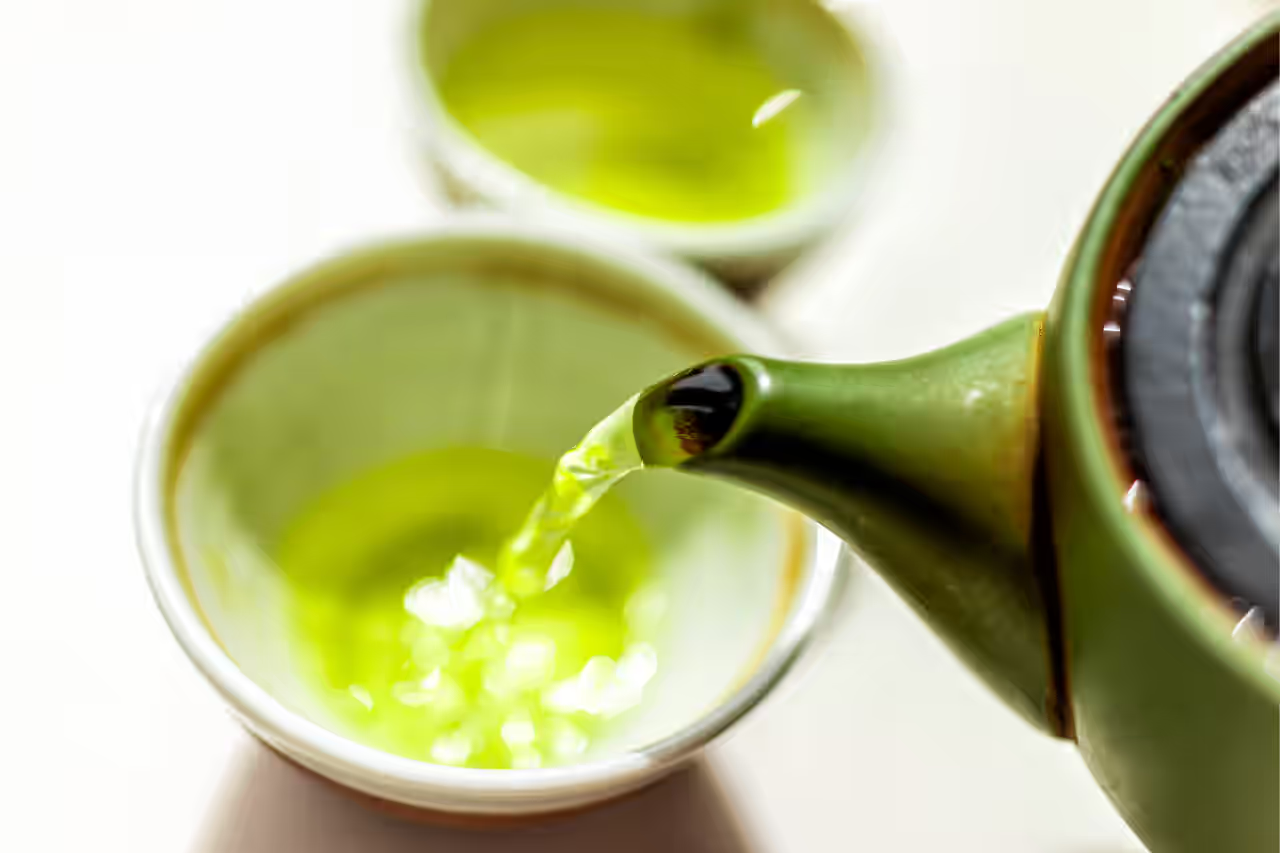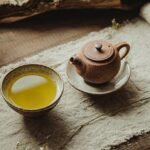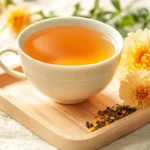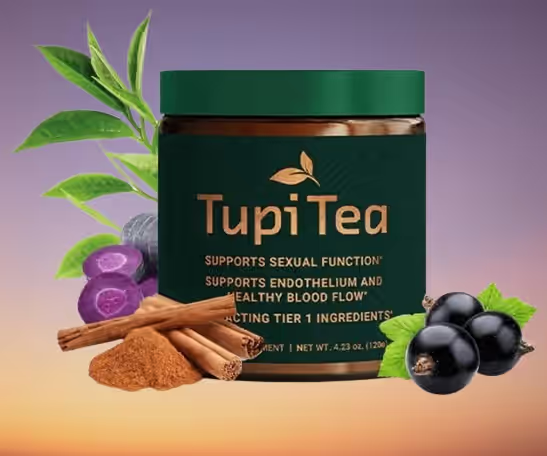Table of Contents
Green tea lovers often find themselves comparing sencha tea vs matcha, two of Japan’s most renowned teas. While both are celebrated for their health benefits and rich flavors, these teas have distinct characteristics that set them apart. In this article, we’ll explore the key differences, answer common questions, and help you decide which tea suits your lifestyle better.
What is Sencha Tea vs Matcha?
Understanding Sencha Tea
Sencha tea is a type of Japanese green tea made from steamed tea leaves. These leaves are rolled, dried, and brewed to create a light, refreshing drink with grassy, slightly sweet undertones. Sencha is Japan’s most popular tea, often enjoyed as a daily beverage due to its versatility and balanced flavor profile.
Rich in catechins, sencha is known for its antioxidant properties, promoting overall health while providing a gentle energy boost.
Understanding Matcha
Matcha, on the other hand, is a powdered green tea made by grinding shade-grown tea leaves. Unlike sencha, the entire leaf is consumed, which magnifies the tea’s nutritional content. Matcha has a creamy texture and a bold, umami flavor.
This tea is celebrated for its ceremonial significance in Japanese culture and its potent health benefits, thanks to its higher concentration of nutrients like chlorophyll, amino acids, and antioxidants.
👉 Savor the Crisp Freshness of Sencha Tea Today! 👈
Is Sencha Healthier Than Matcha?

Both sencha and matcha offer impressive health benefits, but matcha takes the lead in terms of nutritional density. Since matcha is consumed in its powdered form, you ingest the entire leaf, leading to greater absorption of nutrients. Matcha contains higher levels of:
- Antioxidants, particularly EGCG, which fights free radicals and supports heart health.
- L-theanine, an amino acid that promotes relaxation and focus.
- Chlorophyll, known for detoxifying properties.
However, sencha is lower in caffeine, making it a great choice for those who want a milder energy boost without jitters. Its catechin content is also slightly higher, which enhances its fat-burning properties.
👉 Experience the Best Matcha Tea for Pure Green Power! 👈
What Is the Healthiest Type of Green Tea?
While both sencha and matcha are incredibly healthy, the “healthiest” green tea depends on individual preferences and needs. Matcha’s concentrated nutrients make it ideal for people seeking a powerful health boost or enhanced mental clarity. Meanwhile, sencha is perfect for those who enjoy a lighter, everyday tea with ample health benefits.
Is Matcha Just Powdered Sencha?
No, matcha is not simply powdered sencha. Matcha and sencha are produced differently. Matcha comes from shade-grown tea leaves, which increases its chlorophyll and amino acid content, giving it a distinct flavor and vibrant green color. Sencha, however, is grown in sunlight, which enhances its catechins and gives it a more astringent taste.
Which Japanese Tea Is Healthiest?
When it comes to overall health benefits, matcha is considered the healthiest Japanese tea due to its nutrient density. However, if you’re looking for a tea that balances health benefits with a milder taste and lower caffeine content, sencha is an excellent alternative.
👉 Recharge Naturally with Superior Sencha Green Tea! 👈
Sencha Tea vs Matcha Taste
The taste of sencha tea vs matcha is one of their most noticeable differences. Sencha has a bright, grassy flavor with subtle sweetness and astringency, making it a refreshing daily tea. Matcha, on the other hand, delivers a rich, creamy texture with umami notes and a hint of sweetness, often likened to seaweed.
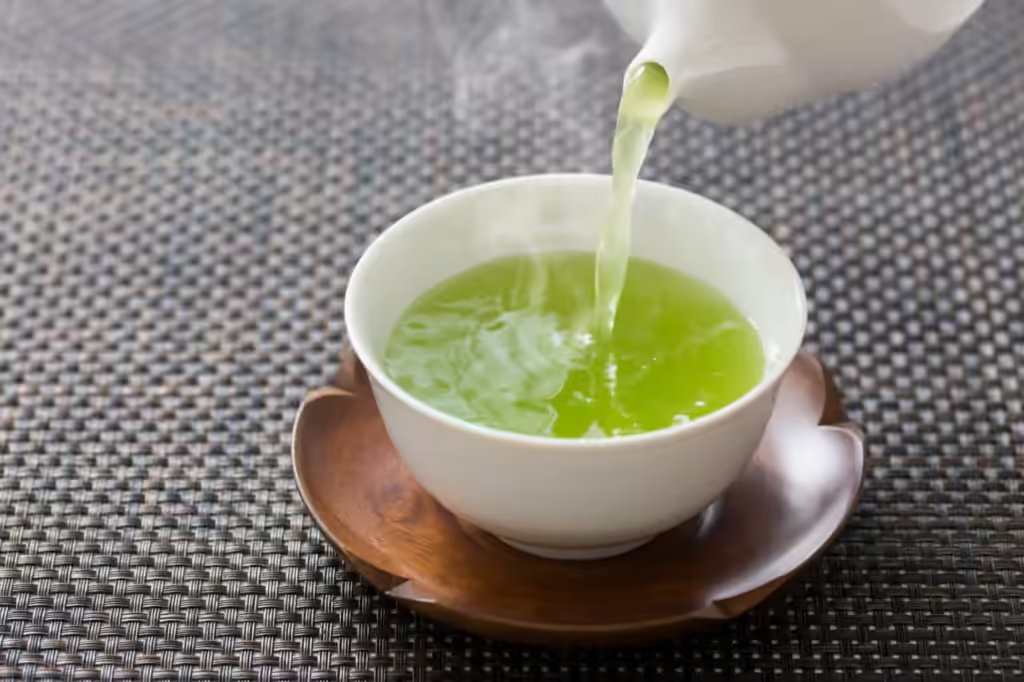
For those who prefer a more complex and bold flavor, matcha is the clear winner. If you enjoy lighter and more refreshing drinks, sencha is a better choice.
Sencha Tea vs Matcha Health Benefits
Both teas boast impressive health benefits:
- Matcha: Higher in antioxidants, supports detoxification, and enhances mental clarity.
- Sencha: Boosts metabolism, supports heart health, and provides gentle energy.
Ultimately, the choice depends on whether you prioritize nutrient density or a balanced daily tea.
👉 Fuel Your Focus with Superior Ceremonial Matcha Tea! 👈
Sencha Tea vs Matcha for Weight Loss
Both teas can support weight loss, but their effects vary. Matcha’s high caffeine and EGCG content can boost metabolism and fat oxidation more effectively. Sencha also aids weight loss by improving digestion and offering a calorie-free drink option, but its impact may be less pronounced.
If weight loss is your primary goal, matcha may provide a slight edge.
Conclusion
Choosing between sencha tea vs matcha depends on your taste preferences, lifestyle, and health goals. Matcha is a nutrient powerhouse with bold flavors, making it ideal for ceremonial occasions or a health-focused diet. Sencha, with its lighter taste and lower caffeine, is perfect for everyday enjoyment. Whichever you choose, both teas offer an array of health benefits that make them a valuable addition to your routine.
